WHAT ARE ANTIBIOTICS?
Antibiotics are powerful medications designed to fight bacterial infections. These drugs either kill bacteria or inhibit their growth, enabling the immune system to combat infections effectively. They are prescribed to treat a variety of bacterial illnesses, including pneumonia, urinary tract infections, and strep throat.
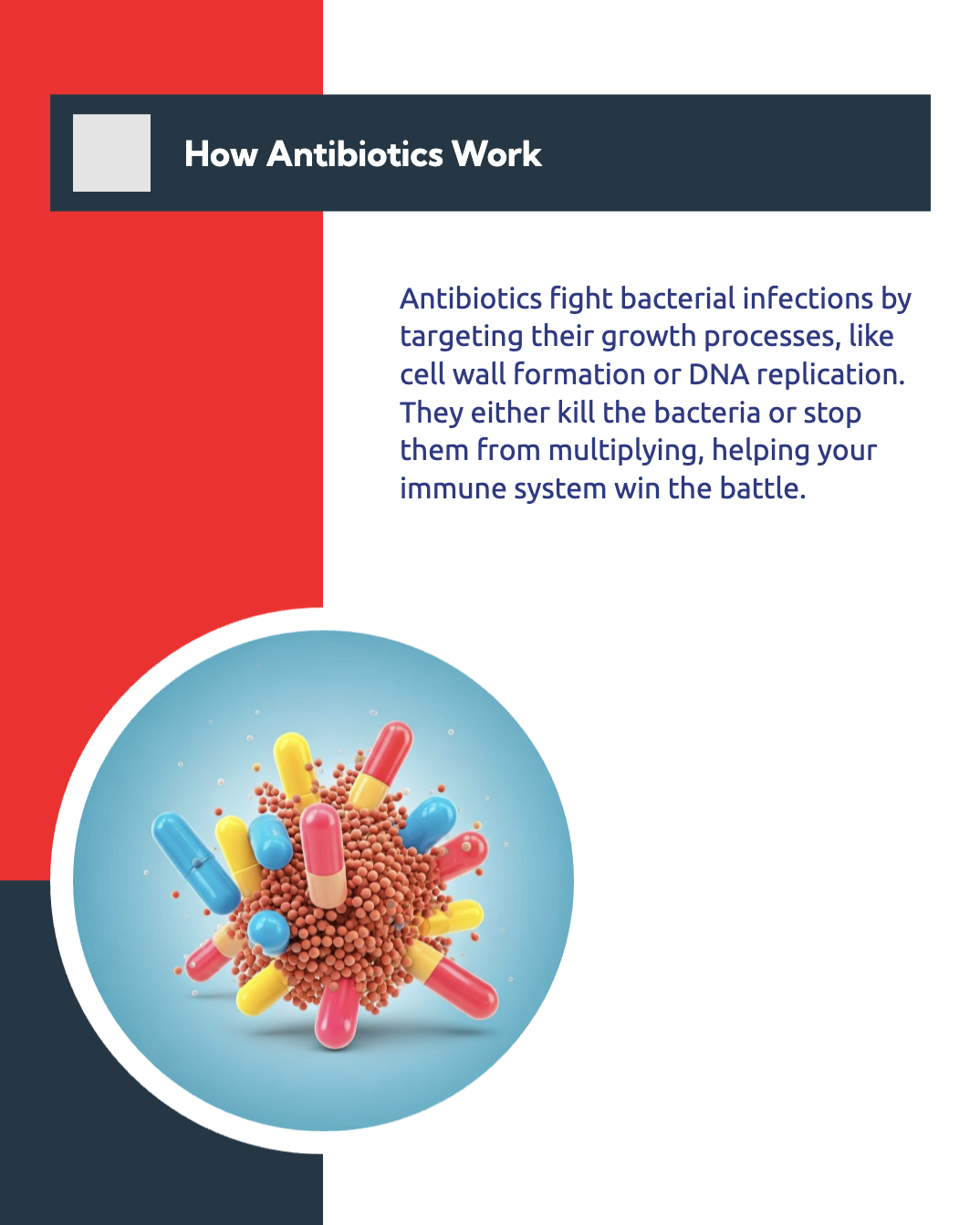
Antibiotics work by targeting specific bacterial processes. They may interfere with bacterial cell walls, protein synthesis, or DNA replication. This targeted approach makes them highly effective against bacterial infections but ineffective against viral illnesses such as the common cold or influenza.
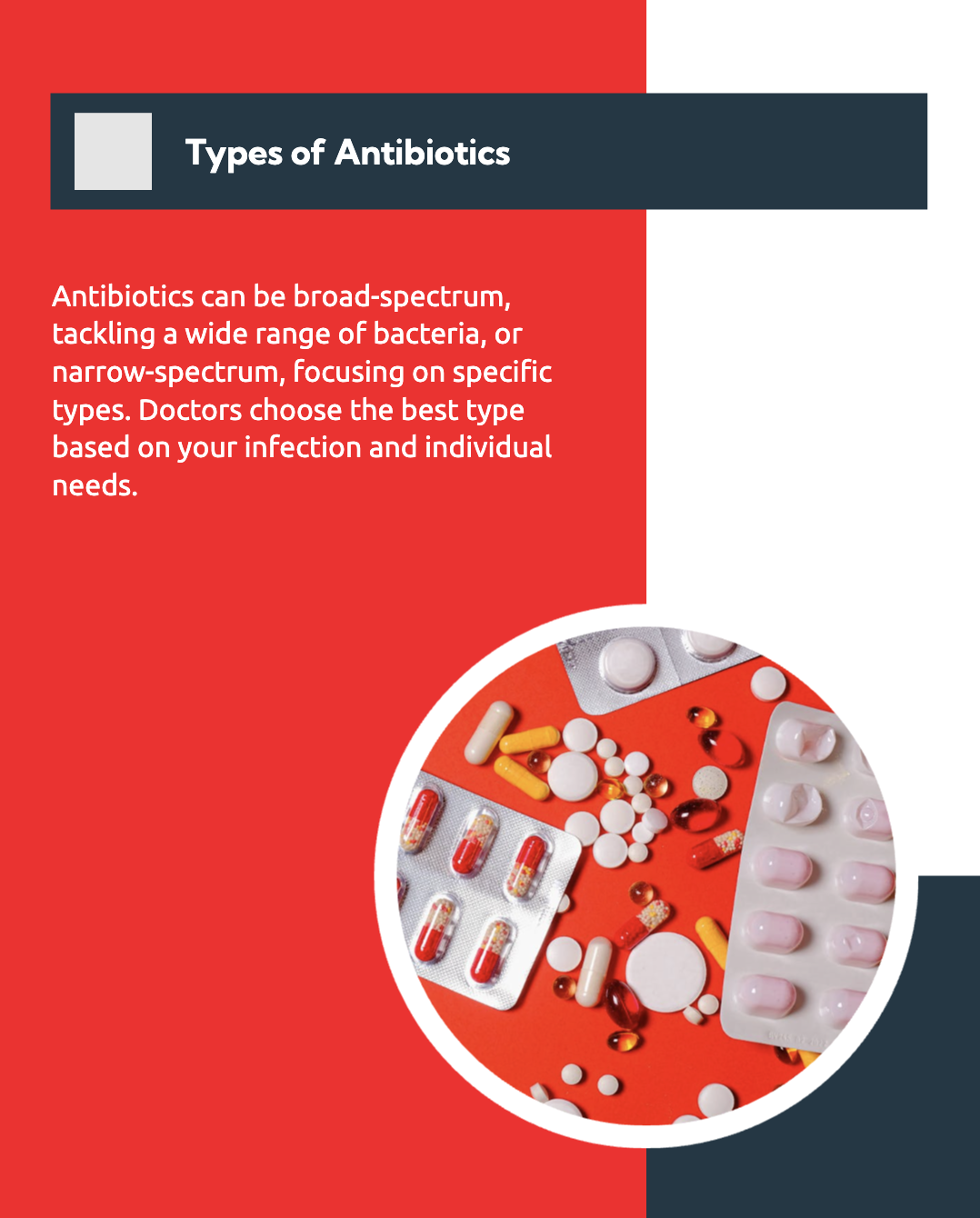
These antibiotics act on a wide range of bacteria, making them useful when the specific bacteria causing an infection is unknown.
Narrow-spectrum antibiotics target specific types of bacteria. They are preferred when the causative bacteria have been identified, as they are less likely to disrupt beneficial bacteria in the body.
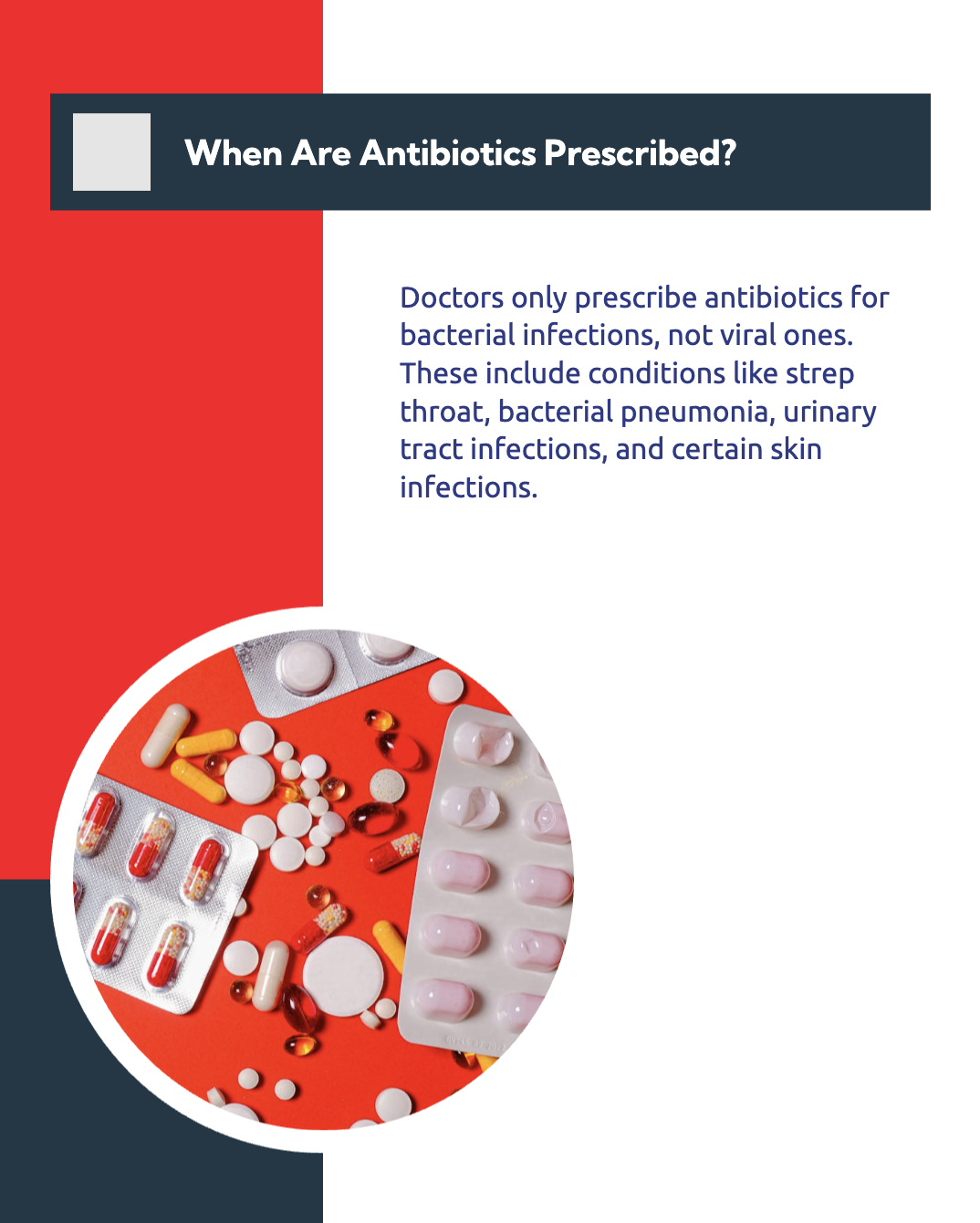
Doctors prescribe antibiotics only for bacterial infections. Common conditions requiring antibiotics include:
Inappropriate use, such as for viral infections, can lead to antibiotic resistance.
Antibiotic resistance occurs when bacteria adapt and become immune to the effects of antibiotics. This makes infections harder to treat and increases the risk of complications. Factors contributing to resistance include:
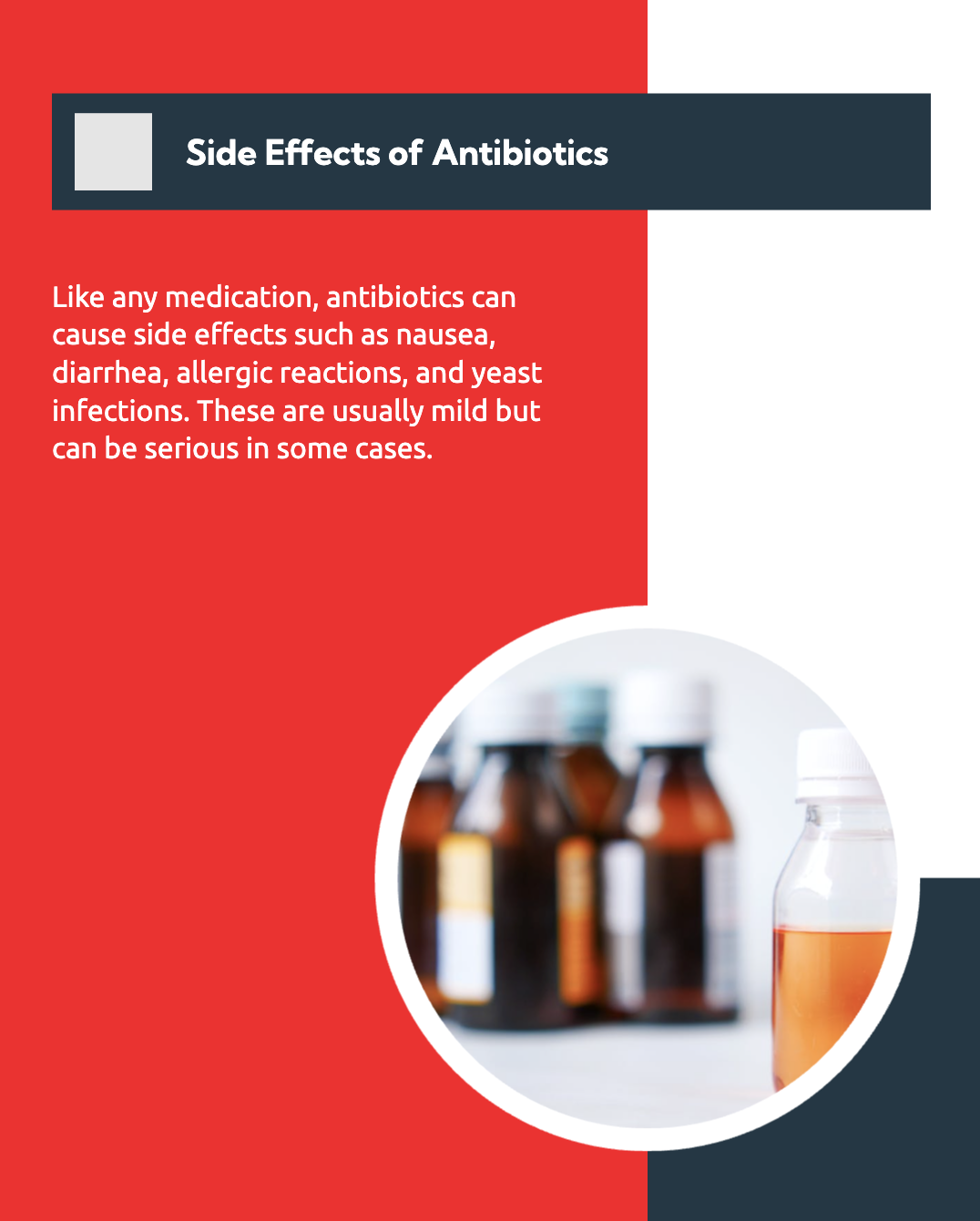
While antibiotics can be lifesaving, they may cause side effects, including:
Severe side effects, such as Clostridioides difficile (C. diff) infections, can occur if the balance of gut bacteria is disrupted.
One of the most crucial aspects of using antibiotics is finishing the entire prescribed course. Stopping early can leave surviving bacteria to multiply, potentially leading to a relapse or the development of resistant strains.
Some natural remedies may support the body’s ability to fight bacterial infections, such as:
While these alternatives may provide support, they should not replace antibiotics in severe infections.
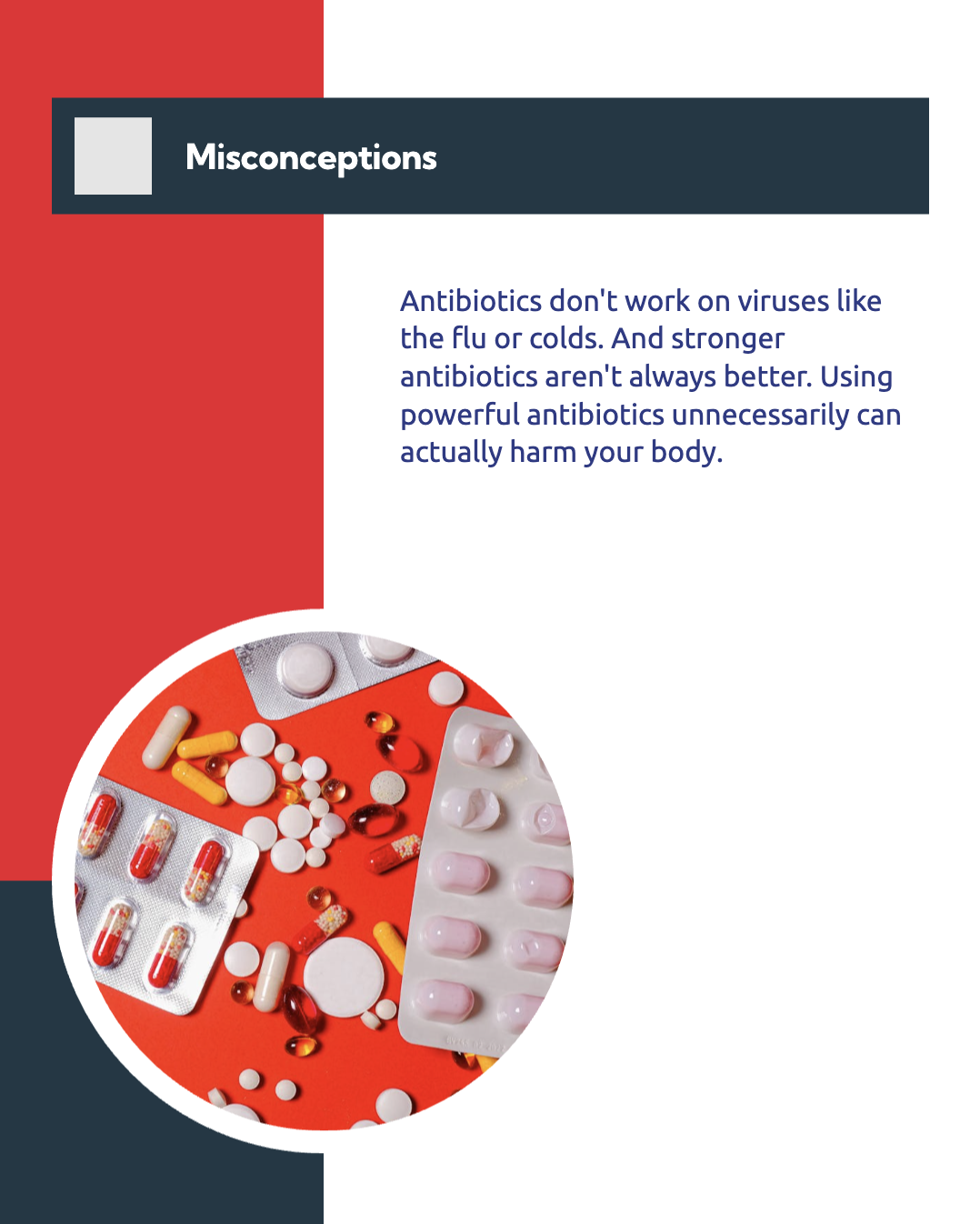
A common myth is that antibiotics can treat viral infections like the flu or colds. This is false. Antibiotics target bacteria, not viruses.
Stronger antibiotics are not always the best choice. Using powerful antibiotics unnecessarily can kill beneficial bacteria and contribute to resistance.
The future of antibiotics involves:
Understanding antibiotics is vital for ensuring their effectiveness in fighting bacterial infections. By using antibiotics responsibly and being aware of the risks of misuse, we can preserve their efficacy for future generations.
No. Always complete the full course as prescribed to prevent resistant bacteria from developing.
No. Antibiotics require a prescription to ensure they are used appropriately and safely.
Yes, but only under the guidance of a healthcare provider. The dosage and type must be tailored to the child’s age and weight.
Only a doctor can determine this through a medical examination and sometimes additional tests.
It depends on the antibiotic. Some, like metronidazole, can cause severe reactions when combined with alcohol. Always check with your doctor or pharmacist.
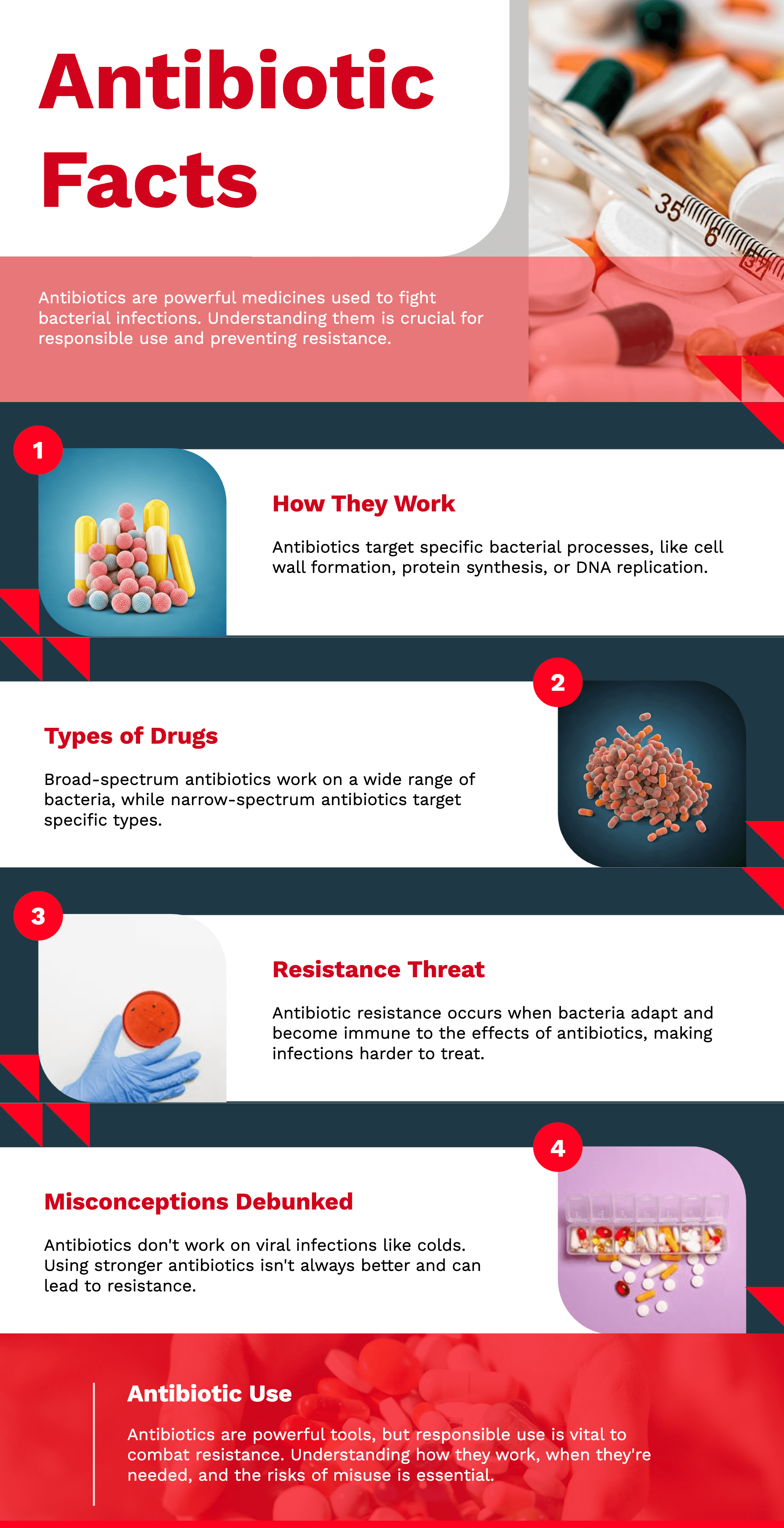 23.12.2024
23.12.2024